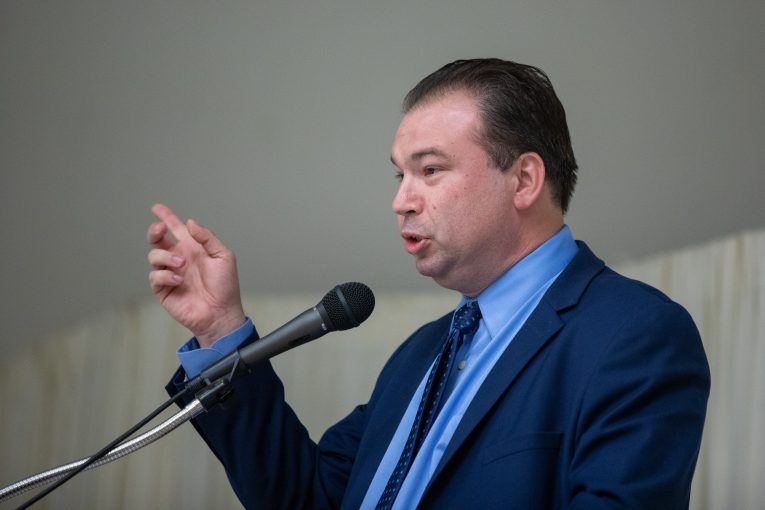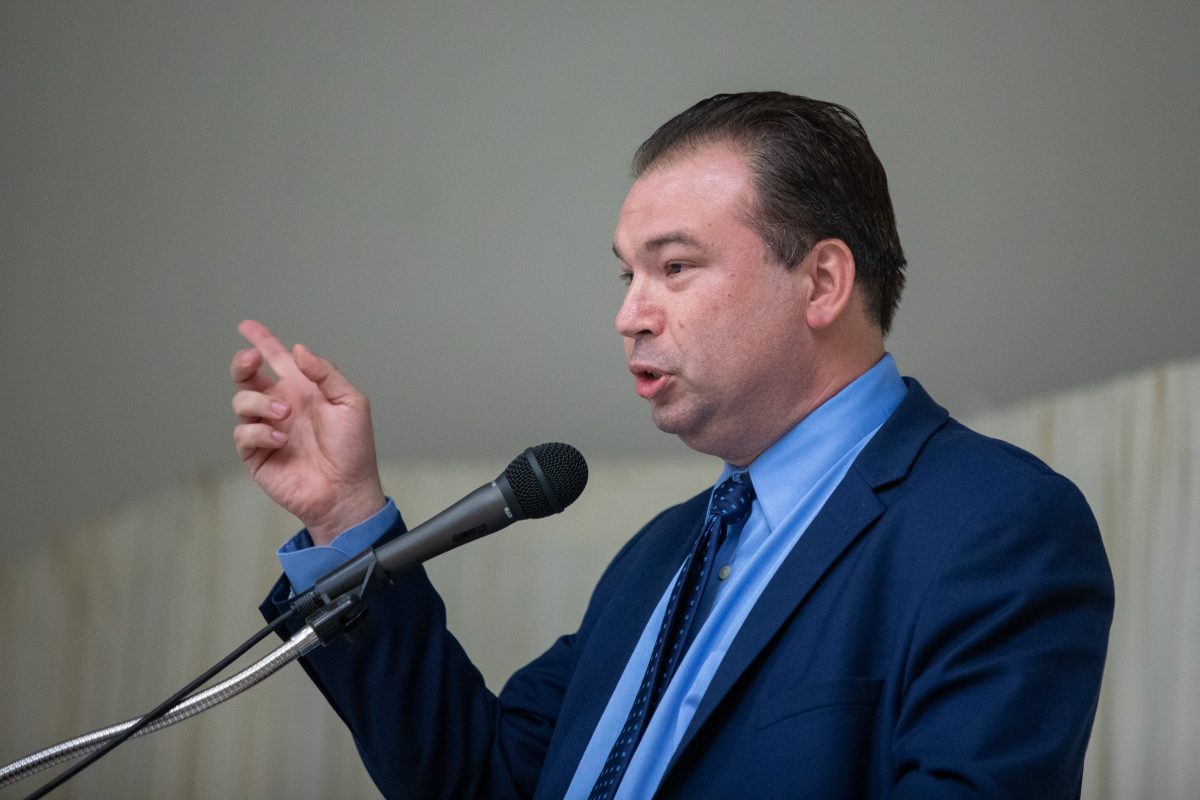

by Jeffrey Deskovic
“Looking back” will feature reprints of articles that Jeff previously wrote while a columnist at The Westchester Guardian, which encompass topics that are applicable here in CA as well as across the country and not simply applicable to NY.
It was with great wisdom that the Founding Fathers included the 5th Amendment, prohibiting individuals from being compelled to give testimony against themselves, and the 6th Amendment, guaranteeing the Right to Counsel, in the Federal Constitution. The focus was upholding the rights of citizens from overzealous governments and obtrusive law enforcement, issues they were only all too well aware of.
Given the many DNA and non-DNA exonerations, it is clear that coercion leads to false confessions—which frequently become wrongful convictions.
The 6th Amendment is tied to the 5th because the right to an attorney is part of the language of the Miranda warnings. There are numerous rules of criminal procedure related to both amendments designed to make them  meaningful and to breathe life into them. One such rule is the “Edwards Rule,”
meaningful and to breathe life into them. One such rule is the “Edwards Rule,”
which states that if a suspect requests an attorney, not only must he or she be provided with one, but, in order to protect the sanctity of the attorney-client relationship, there must be no further questioning until the suspect speaks to an attorney.
To allow questioning in the interim would be to defeat the purpose of the rule. Once an attorney has been requested, police wishing to speak to the suspect must do so in the presence of that attorney.
There are numerous well conceived judicial rationales for this: A) Police questioning is recognized to be somewhat coercive in and of itself, even without police misconduct or attempts at coercion; therefore a request for an attorney is tantamount to saying the person is unable to freely talk and interact with police by themselves. B) There have been numerous instances of active, intentional, police coercion which would be prevented by an attorney’s presence, thereby establishing a situation in which all exchanges between police and the suspect are free and voluntary. As I see it, this condition is also more apt to elicit the truth. C) For civil rights to have meaning, a person waiving them must do so “knowingly, willingly, and intelligently.” A lawyer could fully explain the rights and answer any legal questions, thus enabling a meeting of the minds. A waiver obtained from someone who does not understand what they are waiving defeats both the purpose and the spirit of the rule and amounts to coercion. One cannot agree with something they can’t understand.
Recently, in the case Shatzer v Maryland, the United States Supreme Court, including newly-seated Justice Sonia Sotomayor, placed a 14-day limit on our Constitutional rights and, in doing so, set the stage for the very type of coercion and abuse that both the 5th and 6th Amendments, as well as the case law surrounding them, sought to prevent.
In Shatzer, the subject was already incarcerated for an unrelated offense. The police questioned him in prison regarding an allegation that he had sexually abused his son. He was read his rights, and he asked for a lawyer. The police ceased questioning him, but he was never given an attorney. Two and a half years later, the boy was older and gave police more details. Armed with that information, police visited Shatzer in prison and read him his rights. This time he chose to speak with them, and confessed.
The United States Supreme Court, in a 7-2 decision, recently announced a rule which states that even after a suspect has indicated his unwillingness to speak to them without an attorney, the police no longer need seek a waiver of that right in the presence of the lawyer, and instead may simply return to the suspect 14 days later, without his or her attorney present, to seek such a waiver.
Justice Anton Scalia, who authored the opinion, declared that 14 days was enough time for a suspect to shake off any residual effects of coercion, obtain legal advice from an attorney, and social advice from friends and family. All of the Justices joined in that opinion except Justices Thomas and Stevens, both of whom concurred in the result but objected to the 14-day rule as arbitrary.
Obviously, decisions from the United States Supreme Court invariably impact the broadest possible panorama of future cases, including how the High Court, itself, is likely to rule going forward. When the rights of a defendant, no matter how unsympathetic or repugnant, are infringed upon, in a larger sense the rights of all of us are impacted. And that is my concern.
I am concerned about a scenario in which police seek to question suspects who feel that they need an attorney present before submitting to interrogation. If the police merely leave, and return 14 days later, and, continue to do so until an individual agrees to speak with them, I believe there is a potential for abuse, and legally sanctioned coercion. It is naïve to believe that a dialogue might simply be, “Are you now willing to answer our questions?”
Repeated visits, in and of themselves, can be coercive and harassing. One need only think of how witnesses were treated in the recently-reversed DiGuglielmo case in which the police repeatedly hauled witnesses into headquarters until they changed their story.
A 14-day rule renders our 5th and 6th Amendment rights less meaningful because the respite is for a limited time only. What is to stop police from becoming a permanent fixture in one’s life once one has, for one reason or another, become a suspect, irrespective of one’s innocence?
In my opinion, this decision, encouraging unlimited police contact albeit in 14 day intervals, is a step towards a police state, complete with fear of the authorities.
Many legal experts have voiced their concern over the implications of this ruling. The National Association of Criminal Defense Lawyers (NACDL) filed an amicus brief in support of Shatzer in which they argued that the Edwards bright-line rule should be maintained as-is, noting police might have “an incentive to badger suspects through repetitive catch-and-release tactics.”
Sidley Austin partner Jeffrey Green, who also assists NACDL and other defense lawyers in High Court arguments, added, “At this rate, what’s left [of Miranda] will be only what we see on TV.”
Justice Sotomayor was okay with the introduction of a time limit, asking a question during oral argument regarding police having to obtain a waiver in the presence of an attorney, in the absence of which, no amount of time renders the invocation of rights indefinite, saying, “So there is no termination point, really?”
This case is yet another unfortunate validation of my prior objection to Sotomayor, given her history of rulings, that she could not be entrusted to uphold the rights of us all.
“Jeffrey Deskovic, Esq, MA, is an internationally recognized wrongful conviction expert and founder of The Jeffrey Deskovic Foundation for Justice, which has freed 9 wrongfully convicted people and helped pass 3 laws aimed at preventing wrongful conviction. Jeff is an advisory board member of It Could Happen To You, which has chapters in CA, NY, and PA. He serves on the Global Advisory Council for Restorative Justice International, and is a sometimes co-host and co-producer of the show, “360 Degrees of Success.” Jeff was exonerated after 16 years in prison-from age 17-32- before DNA exonerated him and identified the actual perpetrator. A short documentary about his life is entitled “Conviction“, and episode 1 of his story in Virtual Reality is called, “Once Upon A Time In Peekskill“. Jeff has a Masters Degree from the John Jay College of Criminal Justice, with his thesis written on wrongful conviction causes and reforms needed to address them, and a law degree from the Elisabeth Haub School of Law at Pace University. Jeff is now a practicing attorney.
